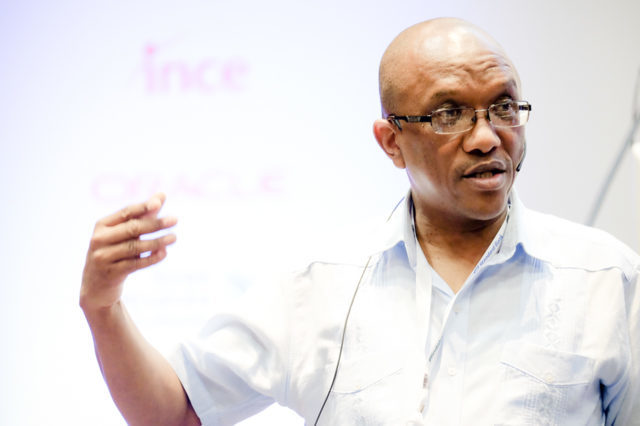THEBE MABANGA
OUTGOING Auditor-General Kimi Makwetu used his last presentation of the Municipal Audit Outcomes to plead for good leadership in order to turn the tide on crumbling municipal finances.
This is despite the fact that the picture had deteriorated in each of his seven years in office, which come to an end in November this year.
“In every society some people do not want to work. Unfortunately, they have the upper hand in a society that lacks good leadership,” Makwetu said to conclude his virtual presentation.
He noted that in South Africa, those who do not want to work hope to prosper by obtaining an illegitimate municipal for which they can be paid with no delivery having occurred.
Makwetu’s office found R32 billion worth of irregular expenditure in South Africa’s local government system and found no evidence of a willingness to take corrective action to stop this leakage.
Only 20 municipalities have received clean audits.
Makwetu’s outstanding achievement has been to give his office teeth through amendments to the Public Audit Act that bring criminal sanction from audit findings a step closer as well as the introduction of material irregularity.
Makwetu notes that the amendments received unprecedented support when they were being processed in parliament by the Standing Committee on the Auditor General.
A material irregularity is any transgression such as fraud which if not addressed is likely to lead to a substantial loss, financial or otherwise, and can harm institution or the general public.
Municipal mangers are legally obliged to address a material irregularity.
Failure to do that can see a material irregularity can be referred for investigation during the audit period.
They also ensure that audited entity can be issued with a binding order to implement remedial action and if that fails, the AG can issue a certificate debt to recover any financial loss
The amendment on material irregularity kicked in at the beginning of April and covered only three months of the financial year under review.
Nine municipalities were selected for auditing for material irregularities.
A total of six material irregularity were identified totalling R 24.5 million, although R2 million of that is known with the rest being estimated.
The irregularities included payment of goods not received, failure to safeguard assets resulting in vandalism and unfair procurement practices leading to overpricing.
For the municipal financial year starting this week, s total of 57 municipalities and one municipal entity have been selected to be audited for material irregularities.
Makwetu also lamented the failure of oversight by the Municipal Committee for Public Accounts, especially in Eastern Cape Municipalities, where matters are not followed up.
He then singled out the North West for particular deterioration, with no clean audit and a rising number of qualified audits and disclaimers.
He noted that in some cases, the same officials have been in place and presided over the rot for the entire time he has been in office, or longer.
Thembi Nkadimeng, the mayor of Polokwane and president of the South Africa Local Government Association told the virtual briefing that the biggest problem is “a lack of accountability and lack of consequences management.”
She noted that one tool that can be used is to withhold municipalities equitable share for their budget. Municipalities receive less than 10% of nationally raised revenue.
SALGA has now formed a multi-disciplinary audit committee with Treasury and the Co-operative Governance department.
Makwetu, who has received death threats along with his senior officials for doing their work, cracked the whip in his gentle manner at municipalities one last time.
(Compiled by Inside Politics staff)



